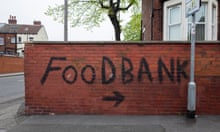Patients with cancer are having their operations cancelled by hospitals with increasing regularity as the NHS winter crisis deepens, the Observer can reveal.
In an alarming escalation, the previously unthinkable step of calling off cancer surgery has become more commonplace in the last fortnight, as a rapid increase in patient numbers has placed intolerable pressures on beds and staff.
The revelation will fuel increasingly bitter arguments between the government and NHS staff, both over the extent of the crisis and where blame lies.
Today, writing for this newspaper, the chair of King’s College Hospital, London, Lord Kerslake, a former head of the civil service, suggests Theresa May’s government is not sufficiently in touch with the reality facing NHS hospitals and staff to appreciate the severity of the crisis.
While ministers play down the pressures as normal for midwinter, and direct blame at managers and GPs, Kerslake says the only way services are maintained at current levels is because of “extraordinary efforts of both senior and frontline staff”. He adds: “Even with this, the picture is of enormous fragility, not just at my trust but across the whole NHS.”
Kerslake also sides with Simon Stevens, chief executive of NHS England, who last week questioned the prime minister’s claim about NHS funding, after No 10 officials began a briefing war against him. His remarks come after Dr Sarah Wollaston, chair of the Commons health select committee, criticised the government for blaming GPs for the crisis. She said in a tweet: “Pretty dismal stuff for govt to scapegoat GPs for very serious NHS pressures. Failure to understand the complexity or own responsibility.”
Investigations by the Observer show that appointments for cancer operations began to be cancelled in December and that trend has accelerated this year. Leeds Teaching Hospitals Trust, one of the largest and best-regarded NHS trusts in England, has this month had to cancel bookings for some complex cancer operations, as well as more straightforward cases. Its doctors say that lack of post-operation intensive care beds has forced them to postpone surgery. One patient, Andy Claridge, was due for a radical robotic prostatectomy at the Leeds trust on 7 January but received an email from a clinical services manager the day before, postponing treatment.

The email said: “Unfortunately the trust has had to cancel planned surgery due to the lack of inpatient beds. All three of our planned surgical cases for this Saturday have been cancelled as a result. I understand from my surgical colleagues that they are trying to open a list on 28 January to replace the 7 January. I will let you know once I get confirmation. On behalf of the team, may I apologise for this situation which has been imposed on us.”
Claridge told the Observer he fears the delay will cause his cancer to worsen. “I found out in an email. I didn’t even get a phone call. It’s highly unusual for this to happen. My consultant said cancelling cancer operations was unprecedented. Hearing this news knocked me sideways. I had prepared mentally for surgery and I felt completely defeated, like someone had zapped me of energy. I felt so let down. My partner was also devastated.
“I know my cancer is operable and there are many more in worse situations, but I worry about my cancer getting bigger the longer I have to wait. When Jeremy Hunt says the NHS is coping, he needs to really look at what is happening. If a hospital is cancelling cancer operations then it isn’t coping.”
Clare Marx, president of the Royal College of Surgeons, confirmed that a system under which cancer operations were protected had given way. “Historically, they have been protected due to their urgent nature. However, feedback from our members suggests that since the start of January, a large number of hospitals across the UK are now cancelling cancer surgery. This will be extremely worrying to patients and their families. It is heartbreaking for a surgeon to have to explain to a patient who has cancer that their operation has had to be cancelled as there are no beds available. It is increasingly clear that no part of the system and no patient is immune from the pressure the NHS is experiencing.”
Jonathan Ashworth, shadow health secretary, blamed ministers. “This is shocking and brings into sharp focus the reality of how the NHS crisis is now impacting patient care. I cannot imagine the intolerable emotional strain cancelling these operations must place on cancer sufferers. It’s shameful this is happening in Theresa May’s Britain.”
Kerslake says that increasing demand and advances in healthcare mean the NHS needs additional funding year on year of around 4% above inflation to maintain service levels. According to calculations by Professor John Appleby, chief economist at the Nuffield Trust health thinktank, this would mean the NHS receiving £5bn more in real terms next year. Its budget would then be £128.6bn.
Appleby blamed the current problems on underinvestment. “The NHS buys a very select group of goods and services – syringes, drugs, doctors, MRI scanners – all of which drive healthcare costs up faster than the rest of the economy. Until 2010, health spending rose at around 4% higher than inflation. Ending the unprecedented financial squeeze and returning to this historical average seems essential if we are to ensure that our health service is fit for the future.”
“For almost six years, funding for both health and social care has not kept pace with the level of need.There have been many more hospital admissions, GP appointments and A&E attendances each year, so we should not be surprised that the NHS appears to be creaking under the pressure. A more sustainable approach to funding our health and social care services is urgently needed.”
An NHS England spokesman said: “Everyone in the NHS will be pulling out all the stops to make sure all patients get their surgery as quickly as possible. There has been a steady increase in operations over the last 15 years but, despite this, the NHS is helping more people survive cancer than ever before.”











Comments (…)
Sign in or create your Guardian account to join the discussion